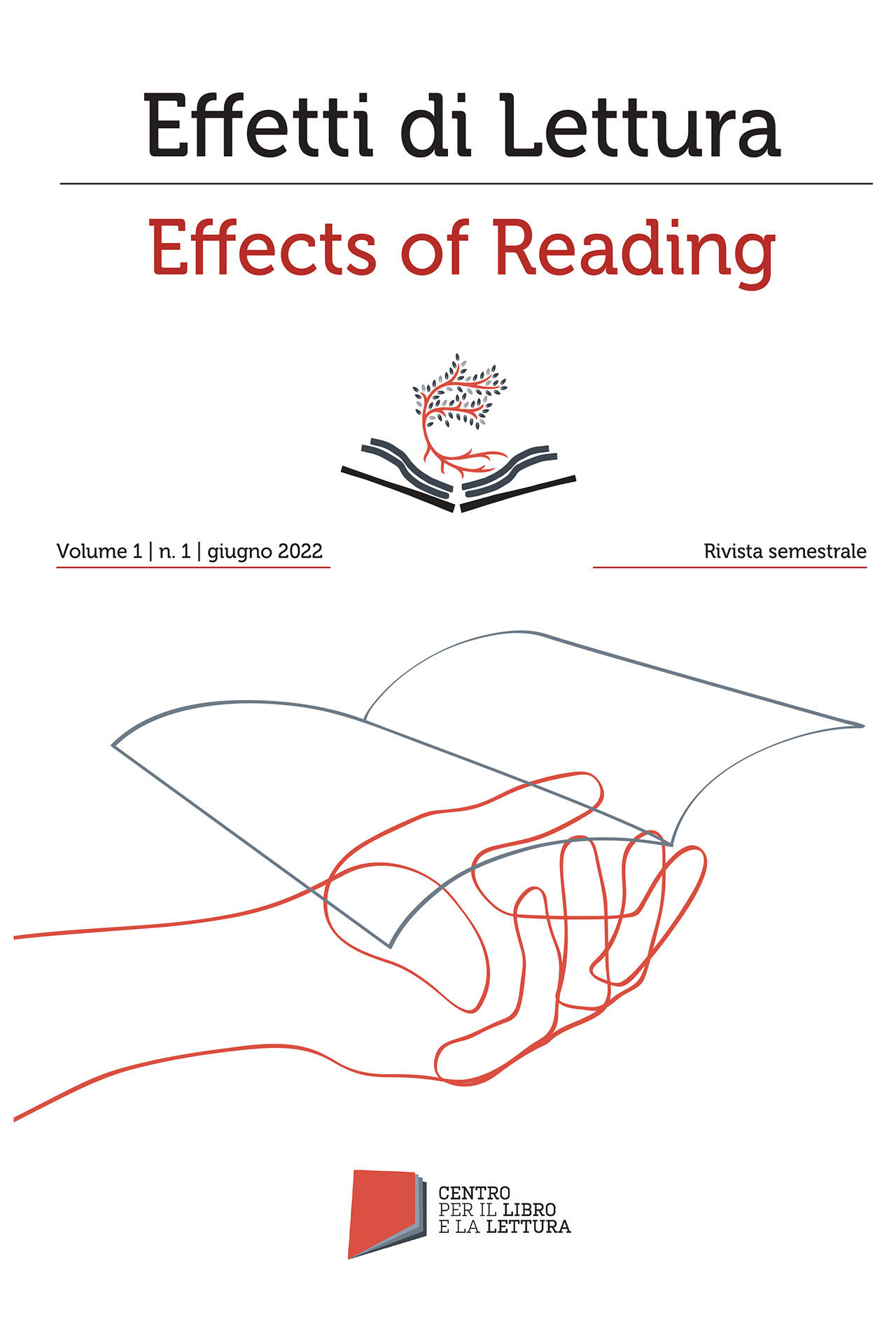Perceived Benefits of Reading Aloud in Preschool: Analysis of a Monitoring Tool for the 0-6 Age Group
DOI:
https://doi.org/10.7347/EdL-01-2022-05Keywords:
reading aloud, semi-structured diary, educational policy, effects of reading aloudAbstract
In an extremely complex framework such as the Italian education system, which moves between innovative impulses and a tendency towards conservation, emerges the need to promote teaching practices that make it possible to increase literacy levels from early childhood. This study fits into this panorama, within the broader context of ‘Leggere: Forte! Ad alta voce fa crescere l’intelligenza’, an educational policy promoted by the Tuscany Region in collaboration with the University of Perugia. The purpose of this study is to investigate what emerged from the subjective perceptions of educators and teachers who joined the action-research project, systematically and intensively reading aloud to chil-dren aged 0-6 in various educational services, through the analysis of a monitoring tool: an ongoing semi-structured diary. This study also aims to understand whether the subjective perceptions of educators provide support to the evidence in the literature on the positive effects of reading aloud in the development of pre-school children. The diaries compiled by educators provided important insights with respect to the improvement of different dimensions perceived as related to the practice of reading aloud: cognitive, emotive-relational, linguistic and interest. Finally, limitations, implications and and future prospects of the present study will be discussed.
Downloads
Downloads
Published
How to Cite
Issue
Section
License
Copyright (c) 2022 Effetti di lettura / Effects of reading

This work is licensed under a Creative Commons Attribution-NonCommercial 4.0 International License.








